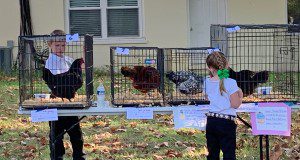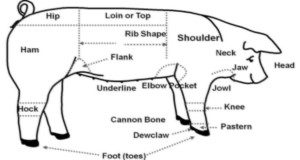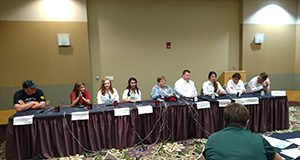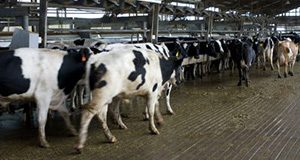The Florida 4-H Poultry Project Record Book is designed as a tool for Florida 4-H members to keep records for their dual-purpose or show flocks. The Florida 4-H Poultry project’s purpose is to acquire an understanding of poultry production by preparing for, purchasing, breeding, caring for, and keeping records on one or more chickens or other poultry species. This 18-page major revision by Chris Decubellis is based on the original edition by L. W. Kalch and is a publication of the UF/IFAS Extension 4-H Youth Development Program.
https://edis.ifas.ufl.edu/4h038
Tag: Chris Decubellis
Raising a Market Show Hog
One of the most rewarding and educational 4-H projects is raising, finishing, and showing a market hog. Many younger 4-H’ers excitedly wait until the day when they can choose their first show pig. Parents and youth need to understand that while the hog project is an excellent opportunity, it requires a great deal of thought, preparation, time, and resources. The purpose of this new 7-page publication is to help parents and youth understand some of the commitments and preparations involved in raising a hog, as well as what to expect and what to do in order to successfully complete the project. Written by Chris DeCubellis and published by the UF/IFAS 4-H Youth Development Program.
https://edis.ifas.ufl.edu/4h407
Florida 4-H Dairy Quiz Bowl
This 4-page document discusses the 4-H Dairy Quiz Bowl Program, a fun and educational way for young people ages 8-18 to positively develop critical thinking, decision-making, problem-solving, listening, and communication skills. Written by Chris Decubellis and published by the UF/IFAS 4-H Youth Development Department, January 2019.
http://edis.ifas.ufl.edu/4h395
Florida 4-H Dairy Record Book
This 36-page document is an animal sciences publication suggested for 4-H members age 8 and up. This record book is a tool to guide youth in keeping an accurate record of their expenses and other important records pertaining to dairy cattle or dairy goats. Written by Karen Hamilton, Chris Decubellis, Chris Holcomb, and Sarah Hensley and published by the UF/IFAS 4-H Youth Development Department, December 2018.
http://edis.ifas.ufl.edu/4h054
Getting Started in the 4-H Embryology Project: Tips for 4-H Agents and Teachers
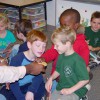 Usually considered an enrichment project for classrooms, the 4-H Embryology Project can also be modified for club or individual use. In it, young people use an incubator to grow avian embryos (inside fertile eggs) through the hatching process. Students learn basic biology and life science while they eagerly look forward to hatching chicks. This 5-page fact sheet describes the necessary equipment and other resources and provides tips and suggestions to increase the hatchability of fertile avian eggs. Written by Marcus Boston, Chris Decubellis, and Judith Levings, and published by the UF Department of 4-H Youth Development, April 2015. (Photo: Marcus Boston, UF/IFAS)
Usually considered an enrichment project for classrooms, the 4-H Embryology Project can also be modified for club or individual use. In it, young people use an incubator to grow avian embryos (inside fertile eggs) through the hatching process. Students learn basic biology and life science while they eagerly look forward to hatching chicks. This 5-page fact sheet describes the necessary equipment and other resources and provides tips and suggestions to increase the hatchability of fertile avian eggs. Written by Marcus Boston, Chris Decubellis, and Judith Levings, and published by the UF Department of 4-H Youth Development, April 2015. (Photo: Marcus Boston, UF/IFAS)
http://edis.ifas.ufl.edu/4h367
Running a Smooth 4-H Business Meeting
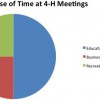 A quality 4-H club meeting consists of three main parts: (1) the business meeting, (2) an educational component, and (3) a recreational component. This 4-page fact sheet focuses on running a smooth 4-H business meeting. Written by Chris DeCubellis, and published by the UF Department of 4-H Youth Development, July 2014.
A quality 4-H club meeting consists of three main parts: (1) the business meeting, (2) an educational component, and (3) a recreational component. This 4-page fact sheet focuses on running a smooth 4-H business meeting. Written by Chris DeCubellis, and published by the UF Department of 4-H Youth Development, July 2014.
http://edis.ifas.ufl.edu/4h344
Rabbits, Rabbits, Rabbits: Online Record Books
These online record books familiarize youth with the importance of record keeping as an integral part of project management. By tracking inventory, financial records associated with their project, rabbit health and grooming details, and related information, youth will be well prepared to relate their experiences in a written narrative as part of their project completion activities. Written by Joy Jordan, Loretta Rodriguez, Jessica Kochert, Bill Heltemes, Chris Decubellis, and Renée Gore, and published by the UF Department of 4-H Youth Development, March 2011.
- Pet Rabbit Record Book (4HRAR11/4H319)
http://edis.ifas.ufl.edu/4h319 - Show Rabbit Record Book (4HRAR12/4H320)
http://edis.ifas.ufl.edu/4h320 - Market Rabbit Record Book (4HRAR13/4H321)
http://edis.ifas.ufl.edu/4h321
